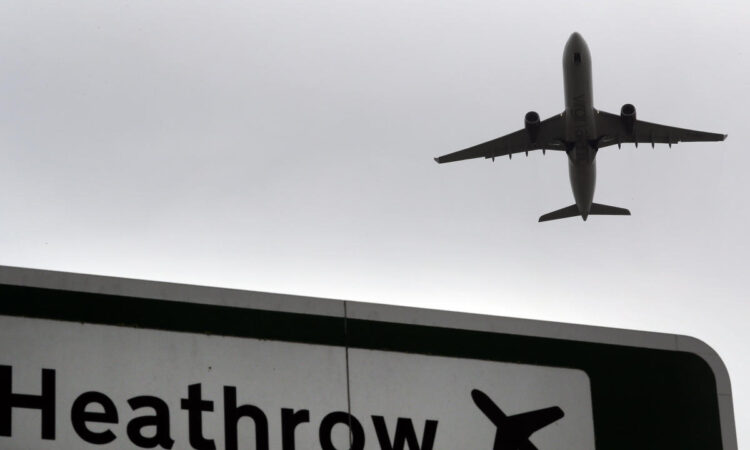
LONDON (AP) — Drink it or bin it: That phrase should have become history this summer at all U.K. airports.
But it’s set to persist for at least another year after the British government said it will grant extensions to several large U.K. airports unable to meet the June 1 deadline to fully install new scanning technology. The airports include London’s two biggest, Heathrow and Gatwick.
The new scanners use computed tomography, commonly known as a CT scan, to produce clearer images. They are being rolled out globally, including in the U.S. and across Europe, and will allow passengers to go through security with two liters (70 ounces) of liquid in their hand luggage — rather than the current paltry 100 milliliters (3.5 ounces).
They will also mean laptops and tablets won’t need to be removed from bags — saving even more time.
The restrictions were introduced around the world in 2006 following a foiled terror plot to blow up planes flying from London to the U.S. with homemade liquid bombs. They were not expected to be in place for 18 years and have been cited as one of, if not the, biggest cause of delays at airport security checks.
A deadline for the new technology to be in place at U.K. airports had originally been set for Dec. 2022 but that was delayed to this summer as a result of the huge disruption caused by the coronavirus pandemic.
The new deadline comes after airports reported that they were struggling to install the scanners ahead of the busy summer holiday period, largely due to supply chain delays and construction difficulties caused by the weight of the machines.
The Department for Transport said the extensions will be granted on a case by case basis and that it was exploring how financial penalties could be imposed for further non-compliance.
It did not provide a breakdown of the situation for each airport, citing security concerns, but said that by the start of June about half of passengers flying from U.K. airports will be processed by the new scanners. London City Airport, a popular short-haul airport, has already successfully introduced the new scanners, as has Teeside Airport in the northeast of England.
“These cutting-edge scanners will make air travel safer and easier for passengers by strengthening security even further,” said Transport Secretary Mark Harper.
“The U.K. is leading the world with its rollout of this technology, but it’s important we give those airports yet to meet the deadline a second chance to get the job done. Until they do, passengers should continue to check before travelling.”
Heathrow has previously said it expects to have new scanners in all security lanes sometime this summer, while Gatwick expects to complete the program by the end of March next year. Manchester Airports Group, which runs Manchester, East Midlands and London Stansted airports, said its scanners will be fully rolled out in 2025.
“Airports are making excellent progress in delivering these multi-million-pound investment programmes, which will ensure the U.K. remains at the forefront of aviation security in the years ahead,” said Karen Dee, chief executive of the trade body Airport Operators Association.
Naomi Leach, deputy editor of consumer magazine Which? Travel, said passengers leaving the U.K. should be warned about potential problems and delays ahead as different rules will apply at different airports.
“It’s imperative that these changes are made as quickly as possible and that the rules at different airports are communicated clearly to passengers in the meantime,” she said.
If not, it’s going to be heard again.
Drink it or bin it.






